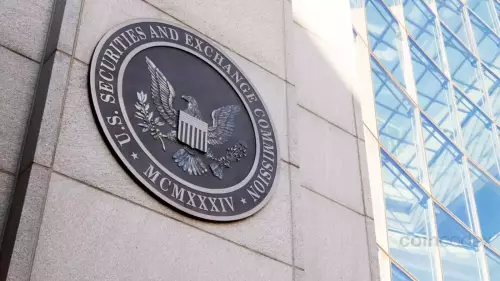Explore China's latest move to expand the digital yuan's global footprint with a new Shanghai hub, focusing on blockchain integration and cross-border payments.

China is making waves in the digital currency arena! The latest development? A brand-new hub in Shanghai dedicated to expanding the digital yuan's influence, focusing on blockchain and cross-border transactions.
Shanghai: The Digital Yuan's New Home
Shanghai, a global financial center, has become the epicenter for China's digital yuan ambitions. Launched in late September 2025, this hub is designed to bolster the digital yuan's position in global finance by focusing on cross-border use cases and blockchain-powered financial services. It's not just talk; they've already rolled out a cross-border payments system, a blockchain service platform, and a digital asset platform.
Blockchain Integration: The Key to Efficiency
China is betting big on blockchain. The Shanghai hub emphasizes integrating blockchain technology to streamline trade finance, supply chain tracking, and regulatory compliance. Think faster settlements, reduced transaction costs, and enhanced transparency. By leveraging blockchain, China aims to reduce fraud and speed up international trade documentation.
Global Implications: Challenging the Dollar's Dominance?
This move has significant global implications. By creating infrastructure that prioritizes cross-border applications, China is signaling its intent to reshape international finance. The hub could encourage more countries, especially those in the Belt and Road Initiative, to use the digital yuan in bilateral trade agreements, potentially challenging the U.S. dollar's dominance.
SWIFT's Blockchain Pilot: A Competitive Landscape
Meanwhile, SWIFT, the global financial messaging network, isn't sitting still. SWIFT has launched a blockchain-based pilot using Linea, an Ethereum Layer 2 platform. This move signals a new strategic direction for SWIFT as it begins testing onchain messaging and settlement systems. The pilot involves major banks such as BNP Paribas and BNY Mellon and could redefine how interbank communication operates. This could pose a challenge to Ripple, which has long been offering blockchain-based cross-border payments.
China's Unique Approach: Innovation with Control
China's approach is unique: tightly controlled financial innovation under government supervision. Integrating blockchain with the digital yuan could automate compliance processes like AML and KYC, enabling regulators to monitor fund flows more effectively. It's a sandbox for scalable adoption, where fintech firms, banks, and multinational corporations can experiment with blockchain-based solutions tied to the digital yuan.
Looking Ahead: A Glimpse into the Future of Finance
The Shanghai hub represents a bold experiment in reimagining cross-border financial infrastructure. China is positioning itself as a pioneer in the CBDC era, offering both opportunities and challenges for the international financial system. As the hub expands, it could serve as a blueprint for how digital currencies and blockchain can work together to streamline global commerce.
So, what does this all mean? China's digital yuan is not just a domestic project; it's a global play. With blockchain integration and a strategic hub in Shanghai, China is setting the stage for a new era in international finance. Whether this leads to a complete overhaul of the existing system remains to be seen, but one thing is clear: the game is changing. Keep your eyes peeled – the future of finance is unfolding, and it's going to be an interesting ride!














































































